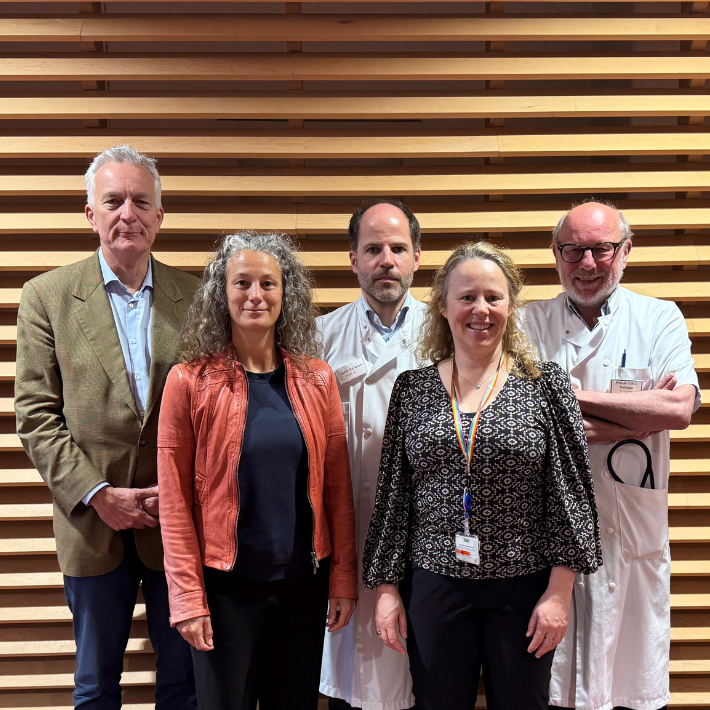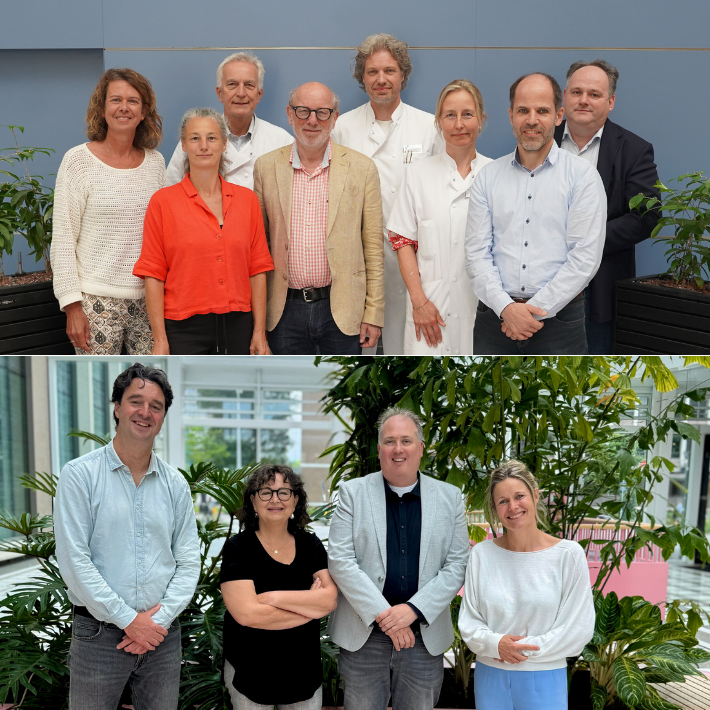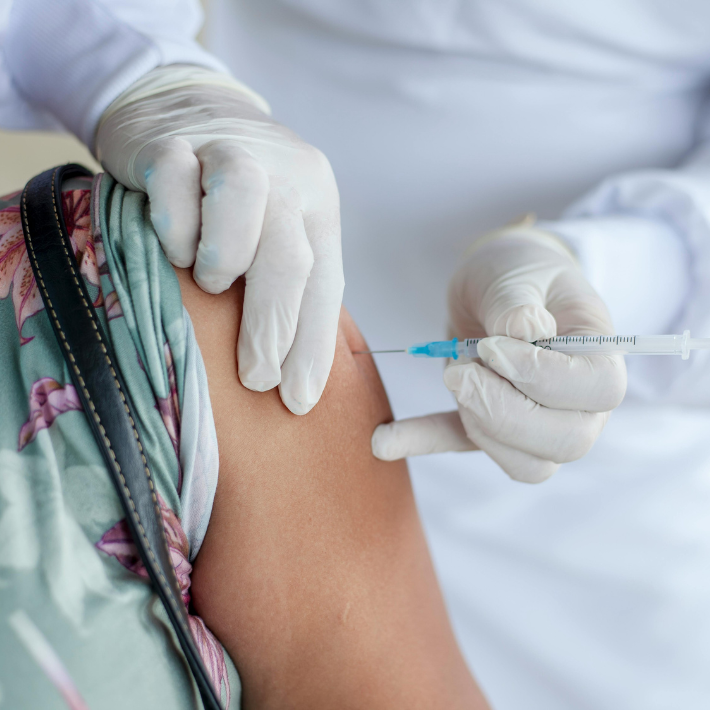Medical Milestone: LUMC Treats First Dutch Patient with CAR T-Cell Therapy for Autoimmune Disease
f.l.t.r.: Hendrik Veelken, Rosa de Groot, Hans Ulrich Scherer, Pauline Meij en Tom Huizinga
&width=710&height=710)
From cancer to autoimmune diseases
CAR T-cell therapy holds great promise for patients with autoimmune diseases. Recent reports from international centers have shown remarkable effects in small patient groups, with some cases suggesting the possibility of a cure. While CAR T-cell therapy is currently used in the Netherlands exclusively for cancer treatment, its potential application in autoimmune diseases has yet to be explored.
This type of research in the Netherlands is still in its initial stages, and large-scale clinical studies have yet to be conducted. Furthermore, there are no national regulations in place, nor is there reimbursement for the treatment. Despite these challenges, the LUMC—the national expertise center for neurological lupus—has now administered CAR T-cell therapy to a patient for the very first time.
Professor Hans Ulrich Scherer, a professor of rheumatology, explains how this was possible: “To administer this innovative treatment, the LUMC received special approval from Health and Youth Care Inspectorate to treat a single patient with a very severe form of neurological lupus with CAR T-cell therapy.”
…This type of research in the Netherlands is still in its initial stages, and large-scale clinical studies have yet to be conducted. Furthermore, there are no national regulations in place, nor is there reimbursement for the treatment. Despite these challenges, the LUMC—the national expertise center for neurological lupus—has now administered CAR T-cell therapy to a patient for the very first time.
Professor Hans Ulrich Scherer, a professor of rheumatology, explains how this was possible: “To administer this innovative treatment, the LUMC received special approval from Health and Youth Care Inspectorate to treat a single patient with a very severe form of neurological lupus with CAR T-cell therapy.”
In this autoimmune disease, the immune system malfunctions, failing to regulate itself properly. Under normal circumstances, a specific type of white blood cells—known as B cells—plays a crucial role in fighting infections by producing antibodies that target harmful bacteria, viruses, and fungi. However, in some cases, certain B cells, called autoreactive B cells, mistakenly generate antibodies against the body’s own healthy cells or proteins. These antibodies, known as autoantibodies, trigger the immune system to attack its own tissues, leading to inflammation and damage to organs and tissues.
Patients with autoreactive B cells are often treated with immunotherapy designed to target and eliminate B cells. Scherer explains: “This approach effectively removes B cells, including autoreactive B cells, from the bloodstream. However, current therapies face challenges in penetrating deeper tissues such as muscles, tendons, connective tissue, bone marrow, and organs. As a result, some autoreactive B cells may persist, making the treatment less consistently effective. When these remaining cells multiply again, the disease often reemerges. CAR T-cells offer a promising solution, as they can effectively penetrate tissues and organs. With its extensive knowledge, expertise, and state-of-the-art facilities, LUMC is fully equipped to safely implement CAR T-cell therapy for patients with autoimmune diseases where autoreactive B cells play a crucial role.”
To invest in CAR T-cell therapy
For decades, the LUMC has made cell therapy a strategic priority. Thanks to substantial investment, it has established a production facility—the Center for Cell and Gene Therapy—where researchers develop CAR T-cells in-house. By producing these cells within the LUMC, the time between collecting a patient’s blood and reinfusing the CAR T-cells is significantly reduced. This combination of cutting-edge infrastructure and hands-on expertise has enabled the LUMC to advance CAR T-cell therapy, refining both its clinical applications and laboratory research to improve patient outcomes.
Professor Hendrik Veelken, head of the hematology department, highlights the impact of this approach: "Over the years, doctors, nurses, scientists, and analysts have accumulated extensive specialized expertise. Our team knows exactly how to administer this treatment safely and effectively, and they are well-versed in legal and regulatory requirements. The knowledge we have developed through years of experience in cancer care has now enabled us to take the first crucial steps in applying CAR T-cell therapy to autoimmune diseases.”
First patient in the Netherlands
The patient received CAR T-cell therapy in February and is doing well. No autoantibodies have been detected following treatment, allowing the patient to discontinue immunosuppressive treatment. Moreover, physical improvements have been observed—the swelling in the spinal cord has markedly decreased, and the patient has regained the ability to use specific torso muscles that were previously non-functional.
“The close collaboration between hematologists and rheumatologists at the LUMC has been instrumental in achieving this crucial first step in applying CAR T-cell therapy to autoimmune diseases. However, widespread implementation of this treatment will take a long time. The LUMC remains at the forefront of innovation, striving to introduce this groundbreaking therapy into clinical studies. These studies are essential for scientifically validating the safety and efficacy of CAR T-cell therapy in treating autoimmune diseases,” says Scherer.
More information:
In English:
Cancer therapy with engineered immune cells significantly reduced
In Dutch:
Neuro-Psychiatrische klachten bij systemische lupus erythematosus (NPSLE)
“Bij een mooie zonsondergang dacht ik: misschien is dit de laatste keer”
Super steriel: het Centrum voor Cel- en Gentherapie

&width=710&height=710)
&width=710&height=710)
&width=710&height=710)